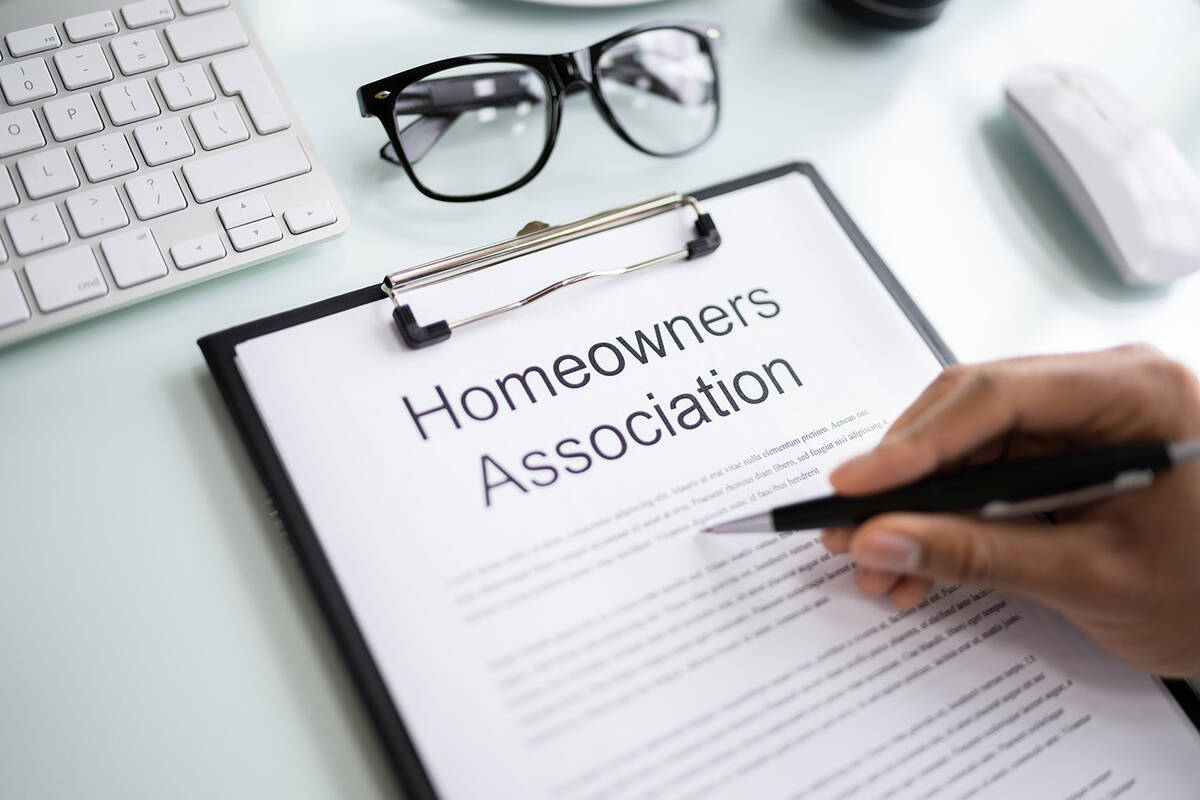HOAs must file BOI reports with FINCEN
NOTE: This article by Las Vegas attorney Greg P. Kerr was first published in the Community Associations Institute Nevada Chapter newsletter. We received permission to reprint it here. It is important to our homeowners associations. This is the third and final part of a three-part series.
We continue our discussion on the Anti-Money Laundering/Corporate Transparency Act and how it will affect our HOAs in Nevada.
Penalties for noncompliance
Failure and/or refusal to file timely beneficial ownership information, or BOI, reports or updates can be punishable both criminally and civilly. The willful failure to report complete or updated beneficial ownership information to United States Department of the Treasury’s Financial Crimes Enforcement Network, or FINCEN, or the willful providing of or attempt to provide false or fraudulent beneficial ownership information may result in a civil and criminal penalties, including civil penalties of up to $500 for each day that the violation continues, or criminal penalties including imprisonment for up to two years and/or a fine of up to $10,000. Senior officers of an entity that fails to file a required BOI report may be held accountable for that failure. Additionally, a person may be subject to civil and/ or criminal penalties for willfully causing a company not to file a required BOI report or to report incomplete or false beneficial ownership information to FINCEN.
Notice to board members and candidates of BOI reporting requirements
The BOI reporting requirements are mandatory, and homeowners associations and board members are subject to penalties if BOI reports are not filed. Current board members and candidates who wish to be elected to the board of directors must be informed of this requirement.
As to future candidates for the board of directors, it is advisable that nomination forms be amended to include a brief notice of the requirement of board members to comply with the act or that the nomination forms sent to the membership are accompanied by such a notice.
Candidates must be informed that their cooperation with complying with the act is critical to avoiding the penalties that may be imposed under the act for failure and/or refusal to file timely and accurate BOI reports.
Additionally, it is important to note that board members who refuse to comply with the act’s reporting requirements subject not only themselves individually to potential penalties but also subject the association itself to penalties under the act. Compliance by board members with the act’s BOI reporting requirements is mandatory.
Moreover, community managers must not only be aware of the act’s BOI reporting requirements but must also advise and instruct their clients to comply and update any BOI reports whenever there is a change in membership on the board of directors. As noted, changes in beneficial ownership interests must be reported to FINCEN within 30 days of the change.
Closing comments
With the exception of a very limited number of homeowners associations that may be tax exempt as 501(c) corporations, Nevada homeowners associations are subject to the act.
It is highly unlikely that homeowners associations were the intended target of the federal government’s efforts to combat the money laundering and other financial crimes it is trying to fight against.
Nevertheless, the scope of the FINCEN rule is such that it captures unintended companies for BOI reporting, such as homeowners associations.
There are pending efforts in Congress to limit that scope, as millions of small businesses will be potentially burdened by the act. House of Representatives bill HR 5119 is pending, which, if passed, will delay the reporting requirements for one year for many of the businesses that are set to report under the FINCEN rule.
Common interest industry groups such as Community Associations Institute are advocating at the federal level for support of those bills and other legislation that will allow homeowners associations to not be burdened by the act’s BOI reporting requirements, which are intended to fight money laundering and other financial crimes.
Also, there is a section in the act (codified at 31 U.S.C. § 5336(a)(11)(B)(xxiv)(I) and (II)) that gives the secretary of the Treasury, with the concurrence of the United States attorney general and the secretary of Homeland Security, the power to adopt additional regulations that exempt entities from the reporting requirement where it is determined that the BOI reporting requirements: (1) would not serve the public interest; and (2) would not be highly useful in national security, intelligence, and law enforcement agency efforts to detect, prevent or prosecute money laundering, the financing of terrorism, proliferation finance, serious tax fraud or other crimes. There is an argument to be made that imposing the BOI reporting requirements on homeowners associations do little to advance the underlying goals of the act.
At this time, however, the act and the requirements under 31 C.F.R §1010.380(d)(1) apply. It is critical that our Nevada common-interest communities comply with the act and that boards of directors are seeking appropriate legal advice from their legal counsel for both guidance in complying and in filing and completing timely and accurate BOI reports with FINCEN.
Greg P. Kerr, Esq., is the CAI president-elect for 2025. In addition, he is a partner at Wolf, Rifkin, Shapiro, Schulman &Rabkin, LLP
Barbara Holland, CPM, is an author, educator and expert witness on real estate issues pertaining to management and brokerage. Questions may be sent to holland744o@gmail.com.













